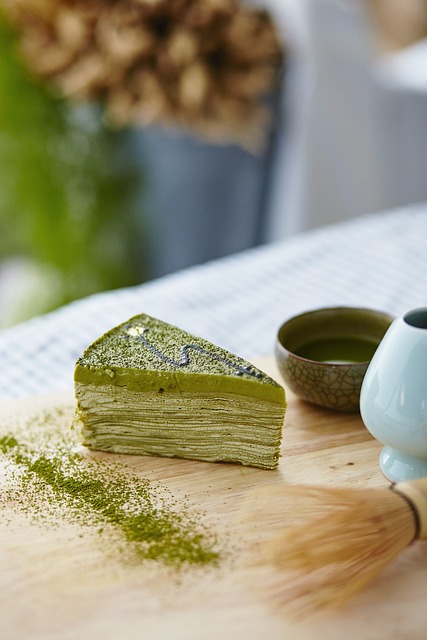Welcome to the land of K-pop and kimchi! South Korea has everything a traveler could dream of – captivating history, vibrant cities, breathtaking landscapes, and incredible food. This ultimate travel guide will unravel the secrets of this enchanting country, with tips, itineraries, and more to help you embark on the adventure of a lifetime. Get ready to be immersed in the wonders of South Korea!
Continue readingBreastfeeding Benefits: Nourishing Mother and Child
Breastfeeding Benefits: Nourishing Mother and Child
Ah, the miraculous bond between a nursing mother and her little one! Beyond its heartwarming aspect, did you know that breastfeeding holds incredible benefits for both mom and baby? Not only does it provide unmatched nourishment for the little champ, but it also strengthens the maternal bond and lends a helping hand in postpartum recovery. Let’s dive into the captivating world of breastfeeding and uncover its magical benefits for both mother and child.
Continue readingThe Tale of “The Butterfly Lover”: A Legendary Chinese Folklore
Introduction
The rich tapestry of Chinese folklore is adorned with timeless tales, and among them, one that stands out in its ethereal beauty and poignant narrative is “The Butterfly Lover.” This legendary story, often referred to as the Chinese equivalent of “Romeo and Juliet,” transcends time and culture, leaving an indelible mark on the hearts of those who encounter it. In this article, we will embark on a journey through the intricate threads of this ancient narrative, exploring its origins, characters, and enduring significance.
The Origins of “The Butterfly Lover”
A Tale from Ancient China
“The Butterfly Lover,” known as “Liang Shanbo and Zhu Yingtai,” is a beloved Chinese legend that has stood the test of time, with its roots tracing back to ancient China during the Tang Dynasty, which spanned from 618 to 907 AD. This enduring narrative is a testament to the rich storytelling tradition of Chinese culture, where history, romance, and tragedy intertwine to create a narrative that has mesmerized generations.
Tang Dynasty: The Historical Context
To truly appreciate the depth and significance of “The Butterfly Lover,” we must first step back in time to the Tang Dynasty, a period characterized by cultural blossoming, artistic achievements, and societal evolution. It was an era of prosperity, marked by the flourishing of arts, literature, and education.
The Birth of a Timeless Tale
In the midst of this cultural renaissance, “The Butterfly Lover” emerged as a tale of profound emotional depth. While the precise origin of the story remains shrouded in the mists of history, it is widely believed to have been an oral tradition, passed down from generation to generation. As with many ancient tales, “The Butterfly Lover” likely underwent numerous adaptations and interpretations over the centuries, evolving into the captivating narrative we know today.
Elements of History
One of the remarkable aspects of “The Butterfly Lover” is its ability to blend historical elements seamlessly into its storytelling fabric. During the Tang Dynasty, Confucianism was a dominant force in Chinese society, shaping moral values, social norms, and education. This cultural backdrop plays a pivotal role in the narrative, as both Liang Shanbo and Zhu Yingtai are students at a Confucian school when their fateful encounter occurs.
The Intriguing Characters
Central to the tale are the two main characters: Liang Shanbo and Zhu Yingtai. These characters are not mere archetypes; they are intricately crafted individuals who embody specific virtues and challenge societal norms.
Liang Shanbo
Liang Shanbo is portrayed as a quintessential scholar of the time—virtuous, studious, and deeply committed to his studies. His character exemplifies the Confucian values of loyalty, friendship, and filial piety. Liang’s unwavering loyalty to his friend and his profound sense of honor make him a character of great moral integrity.
Zhu Yingtai
On the other hand, Zhu Yingtai, the female protagonist, stands in stark contrast to the conventional roles expected of women in traditional Chinese society. She is portrayed as a spirited and intelligent young woman who defies these societal norms. Her decision to disguise herself as a male scholar to access education is a bold act that challenges gender expectations. In this way, Zhu becomes a symbol of empowerment and resilience.
The Heart of the Narrative
The crux of “The Butterfly Lover” lies in the evolving relationship between Liang Shanbo and Zhu Yingtai. Their initial meeting as fellow students at a Confucian school sets the stage for a deep and lasting friendship. Unbeknownst to Liang, Zhu is, in fact, a woman living in disguise as a man, a secret known only to her maid.
As time passes, Liang Shanbo’s affection for his “sworn brother” deepens into romantic love. He remains oblivious to Zhu’s true identity. Meanwhile, Zhu Yingtai, though concealing her love for Liang, finds herself torn between her true feelings and the societal expectations that dictate her destiny.
The Forbidden Love
The forbidden love between Liang Shanbo and Zhu Yingtai forms the emotional core of the story. It is a love that transcends societal norms and conventions, and in doing so, it becomes both profoundly romantic and tragically poignant.
The story takes a heart-wrenching turn when Zhu’s true identity is revealed after her arranged marriage to another man. Liang Shanbo’s heartbreak is palpable, and he falls gravely ill, unable to bear the weight of his unrequited love. This twist of fate ultimately leads to the story’s tragic and tearful conclusion, making it one of the most poignant love stories in Chinese literature.
A Lasting Legacy
“The Butterfly Lover” is not just a story; it is a cultural treasure that has left an indelible mark on Chinese culture and beyond. Its themes of love, sacrifice, and societal expectations continue to resonate with audiences of all ages. The story’s enduring appeal has inspired countless adaptations in literature, theater, film, and television, both in China and internationally.
In essence, “The Butterfly Lover” is a timeless testament to the power of storytelling. It reminds us that even amidst the vast sweep of history, certain narratives have the ability to transcend time and culture, touching the deepest recesses of the human heart. This legendary Chinese folklore invites us to explore the complexities of love, identity, and tradition, serving as a timeless reminder of the enduring allure of ancient tales.
The Literary Influence
“The Butterfly Lover,” also known as “Liang Shanbo and Zhu Yingtai,” is not merely a captivating love story but a literary masterpiece that has left an indelible mark on the world of Chinese literature, theater, and opera. Its influence extends far beyond the confines of a simple narrative, as it has shaped the artistic and cultural landscape of China for centuries.
The Yuan Dynasty Script: A Cornerstone
One of the most significant milestones in the literary journey of “The Butterfly Lover” can be traced back to the Yuan Dynasty (1271-1368 AD). During this period, a script titled “Butterfly Lovers” (or “Changsheng Dian” in Chinese) emerged, solidifying the story’s place in Chinese literary history. This script, written by an anonymous playwright, provided a structured narrative that would serve as a foundation for future adaptations.
The Yuan Dynasty script, like the story itself, is a tragedy of epic proportions. It captures the essence of love, sacrifice, and the inexorable weight of societal expectations. The characters of Liang Shanbo and Zhu Yingtai are brought to life with exquisite detail, each embodying virtues and flaws that resonate with the human experience. This script laid the groundwork for the enduring popularity of “The Butterfly Lover” and served as a template for subsequent adaptations.
Proliferation in Chinese Literature
Following the Yuan Dynasty script, “The Butterfly Lover” found its way into the pages of countless Chinese literary works. Authors and poets, captivated by the tale’s emotional depth and cultural significance, sought to reinterpret and reimagine the story in their own voices. The story’s themes of forbidden love, gender identity, and societal constraints provided fertile ground for exploration.
One notable example of this literary proliferation is the Ming Dynasty (1368-1644 AD) novel “Hua Zheng Yan Yi” by playwright and author Zheng Zhong. This novel expanded upon the story, adding intricate layers to the characters and their relationships. It further solidified the story’s status as a cultural touchstone.
Theatrical and Operatic Extravaganzas
“The Butterfly Lover” did not remain confined to the pages of books; it found its way onto the stages of theaters and opera houses across China. Its timeless narrative and emotional resonance made it an ideal candidate for theatrical adaptations.
The Peking opera version of “The Butterfly Lover” is particularly famous. This traditional Chinese art form, known for its elaborate costumes, stylized movements, and distinctive vocal techniques, brought the story to life in a visually stunning and emotionally charged manner. The opera continues to be performed to this day, preserving the story’s cultural significance.
Modern Interpretations
As time marched forward, “The Butterfly Lover” adapted to the changing cultural landscape. Modern adaptations in the form of novels, films, television series, and even dance performances emerged. These interpretations often transported the story to contemporary settings while retaining the core elements that have made it a beloved classic.
For instance, in recent years, there have been films and TV dramas that reimagined the story in a modern context, exploring how the themes of love and identity resonate in the 21st century. These adaptations serve as a testament to the story’s enduring relevance.
Beyond China’s Borders
“The Butterfly Lover” transcended its cultural origins and made its mark on the global stage. As interest in Chinese culture and literature grew worldwide, so did the fascination with this timeless tale. Translations, adaptations, and academic studies began to emerge in various languages, making the story accessible to a broader audience.
The Protagonists: Liang Shanbo and Zhu Yingtai
Liang Shanbo
Liang Shanbo stands as a symbol of scholarly virtue and unwavering loyalty within the narrative of “The Butterfly Lover.” In this elaboration, we will explore the facets of his character, his role in the story, and how he embodies the values of honor and integrity that were held in high regard in traditional Chinese society.
The Scholarly Aspect
Liang Shanbo’s character is deeply rooted in scholarship and intellectual pursuits. He is introduced as a diligent student, dedicated to his studies at a Confucian school. His scholarly nature is emblematic of the importance of education in ancient Chinese society. During the Tang Dynasty, when the story is set, education was considered a path to personal and societal betterment. It was a means to cultivate both wisdom and moral character.
Liang’s commitment to his studies is not merely a plot device but serves as a reflection of the broader societal emphasis on learning and self-improvement. It aligns with the Confucian values that were prevalent in Chinese culture during that era, emphasizing the importance of moral rectitude and intellectual development.
Kind-Hearted and Compassionate
Beyond his scholarly pursuits, Liang Shanbo is portrayed as a kind-hearted and compassionate young man. His benevolence extends not only to his fellow students but also to his friendship with Zhu Yingtai, the story’s female protagonist. Liang’s kindness is a testament to his genuine and empathetic nature.
His friendship with Zhu Yingtai is built on a foundation of trust and mutual respect. Despite societal norms dictating that men and women should maintain a certain distance, Liang’s character transcends these boundaries, emphasizing the value of true friendship that goes beyond superficial constraints.
Unwavering Loyalty
Loyalty is a cornerstone of Liang Shanbo’s character. His loyalty to Zhu Yingtai is a central theme in the story. What makes his loyalty all the more remarkable is that he remains devoted to Zhu even in the face of misunderstandings and societal pressures.
As the story unfolds, it becomes evident that Liang’s loyalty is not merely a product of obligation but a genuine commitment to his friend. This unwavering loyalty showcases the depth of his character and underscores the significance of loyalty as a virtue in traditional Chinese culture. Loyalty was considered a fundamental aspect of personal honor, and individuals were expected to remain faithful to their commitments and relationships.
Honor and Integrity
Perhaps the most striking aspect of Liang Shanbo’s character is his embodiment of honor and integrity. These qualities are woven into the very fabric of his being. In traditional Chinese society, honor was closely linked with a person’s moral character and their adherence to societal norms and values.
Liang’s unwavering loyalty to Zhu, even after her true identity is revealed, reflects his commitment to honor. He refuses to betray the trust and friendship they shared, even at great personal cost. This resolute dedication to honor and integrity highlights the importance of these virtues in the moral landscape of the story.
Zhu Yingtai
In the realm of Chinese folklore, few characters are as iconic and multifaceted as Zhu Yingtai. Her portrayal as the female protagonist in the legendary tale of “The Butterfly Lover” not only captivates audiences with its timeless love story but also serves as a powerful representation of empowerment and resilience in the face of societal norms. In this extended exploration, we delve deeper into the character of Zhu Yingtai, shedding light on her intelligence, courage, and her defiance of traditional gender roles.
Breaking Barriers: The Disguised Scholar
Zhu Yingtai’s journey begins with her deep yearning for education and knowledge, a desire considered unconventional and unacceptable for a young woman in ancient China. In a society rigidly defined by gender roles and expectations, where women were often confined to domestic spheres, Zhu’s aspirations were nothing short of revolutionary.
To pursue her dreams, Zhu makes a daring choice – she disguises herself as a male scholar, adopting the name “Zhuang.” This act of subterfuge is not merely a means to an end; it is a profound challenge to the status quo. It symbolizes her unwavering determination to break free from the constraints imposed by her gender, revealing her inner strength and conviction.
The Pursuit of Knowledge
Zhu Yingtai’s decision to masquerade as a male scholar is rooted in her thirst for knowledge. She recognizes that the only path to formal education lies in the realm of men, and she seizes this opportunity with unyielding resolve. Her dedication to her studies is commendable, and she proves herself to be an exceptional scholar, matching and even surpassing her male peers.
Her intelligence shines through as she engages in intellectual debates, navigates the complexities of Confucian philosophy, and excels in her academic pursuits. Zhu’s scholarly achievements serve as a testament to her innate brilliance and tenacity, shattering the myth that women are intellectually inferior.
Challenging Gender Norms
Zhu Yingtai’s actions are a direct challenge to the deeply ingrained gender norms of her time. Her decision to cross-dress and infiltrate a male-dominated academic world not only defies convention but also underscores the limitations that societal expectations place on women. Through her character, the narrative invites us to question these constraints and consider the potential that is stifled when individuals are confined to predetermined roles based on their gender.
Moreover, Zhu’s courage in challenging gender norms is not without consequences. She lives with the constant fear of discovery, knowing that exposure could lead to dire consequences, both personally and socially. This ongoing tension adds layers of complexity to her character, emphasizing the sacrifices she is willing to make in pursuit of her dreams.
Empowerment through Resilience
Zhu Yingtai’s resilience in the face of adversity is one of her defining traits. Despite the many challenges and risks associated with her deception, she perseveres. Her resilience is not solely about maintaining her disguise; it extends to her unwavering commitment to her studies, her loyalty to her friend Liang Shanbo, and her steadfast pursuit of love and freedom.
Her love for Liang Shanbo is a testament to her emotional resilience. She navigates the intricate web of emotions, balancing her deep affection for him with the necessity of concealing her true identity. The emotional turmoil she experiences throughout the narrative serves as a poignant reminder of the complexities of love and the sacrifices one may make for it.
A Timeless Symbol
Zhu Yingtai’s character transcends the confines of her story. She becomes a symbol of empowerment and resilience not only for her time but for generations to come. Her portrayal challenges us to reevaluate our preconceived notions about gender roles and expectations, urging us to recognize the potential and agency of individuals irrespective of their gender.
The enduring appeal of Zhu Yingtai lies in her ability to resonate with contemporary audiences. In an age where discussions on gender equality and empowerment have gained momentum, her character serves as a beacon of inspiration. She reminds us that the pursuit of knowledge, the defiance of societal norms, and the unwavering commitment to one’s principles can lead to empowerment and personal growth.
The Forbidden Love
The Meeting
The stage is set in ancient China, a time when gender roles and societal expectations were deeply entrenched. In this backdrop, we witness the fateful meeting of Liang Shanbo and Zhu Yingtai. Both were sent to study at a Confucian school, a place where scholarly pursuits took precedence over all else.
Liang Shanbo, a young man of remarkable intellect and moral character, arrives at the school with dreams of acquiring knowledge and becoming a respected scholar. On the other hand, Zhu Yingtai, an equally bright and determined young woman, arrives in the guise of a young man named Zhuang. She takes this bold step to fulfill her lifelong aspiration of receiving an education, an opportunity denied to women of her time.
The Masked Identity
As the two students cross paths within the hallowed walls of the Confucian school, they are initially unaware of each other’s true identities. Zhu Yingtai, disguised as Zhuang, masterfully conceals her femininity, her identity known to only a select few. Her masquerade as a man is a courageous act, defying the rigid gender norms that confined women to domestic roles.
It is important to note that during this era, Confucian schools were exclusively for men, making Zhu’s deception all the more audacious. She navigates the challenges of maintaining her secret identity with grace and skill, determined to realize her ambitions.
The Blossoming Friendship
The initial interactions between Liang Shanbo and Zhu Yingtai are marked by academic discussions and shared aspirations. They engage in scholarly pursuits, engage in debates, and assist each other in their studies. Their intellectual connection forms the foundation of a profound friendship, and as time progresses, they become inseparable companions.
As the days turn into weeks and then months, Liang and Zhu develop a camaraderie that transcends the confines of their academic pursuits. They share meals, exchange stories of their pasts, and confide in each other with a level of trust that goes beyond ordinary friendship. Their shared experiences within the school forge an unbreakable bond between them.
The Complexity of Emotions
What makes this friendship particularly intriguing is the gradual emergence of complex emotions within Liang Shanbo. Unbeknownst to him, Zhu Yingtai’s true gender remains hidden, and he perceives her as his “sworn brother” – a term denoting the deep sense of loyalty and camaraderie they share. However, beneath the surface, emotions are quietly stirring.
Liang’s feelings evolve over time, transforming the platonic friendship into something deeper and more profound. He experiences moments of confusion as he grapples with emotions he cannot fully comprehend. These emotions are a testament to Zhu’s remarkable ability to connect with Liang on a deeply personal and emotional level, despite the constraints of her disguise.
The Unspoken Truth
As the story unfolds, the bond between Liang Shanbo and Zhu Yingtai becomes increasingly intricate. Liang’s growing affection for his “sworn brother” becomes undeniable, though he remains oblivious to the truth about Zhu’s identity. Meanwhile, Zhu herself is torn between her affection for Liang and the necessity of maintaining her disguise.
This brewing emotional turmoil sets the stage for the heart-wrenching tragedy that will ultimately unfold in the later parts of the narrative. The unspoken truth of Zhu’s gender casts a shadow over their relationship, creating a poignant tension that adds depth and complexity to their interactions.
Love Blossoms
In the enchanting tale of “The Butterfly Lover,” the theme of love is explored with depth and complexity, making it a central element of the narrative. As their bond strengthens over time, the characters of Liang Shanbo and Zhu Yingtai find themselves entangled in a web of emotions that gradually evolve into profound and forbidden love.
Liang Shanbo’s Transformation
At the outset of their relationship, Liang Shanbo and Zhu Yingtai share a bond of friendship that is founded on mutual respect and admiration. Liang, a scholarly and honorable young man, initially perceives Zhu as his “sworn brother” due to her disguise as a male scholar. This fundamental misunderstanding forms the basis of Liang’s emotional journey.
As time progresses, Liang’s feelings for Zhu begin to undergo a remarkable transformation. What starts as a genuine friendship deepens into something far more profound. This transformation is marked by Liang’s growing affection for Zhu, though he remains blissfully unaware of her true identity as a woman. His emotions evolve gradually, like the slow unfurling of a delicate lotus flower in the warm rays of the sun.
Zhu Yingtai’s Hidden Emotions
On the other side of this intricate love story, we find Zhu Yingtai, a spirited and intelligent young woman who has taken on the guise of a male scholar to pursue her education—an endeavor reserved exclusively for men in her society. Behind her outward appearance of a male scholar lies a heart that secretly harbors affection for Liang Shanbo.
Zhu’s character is a study in resilience and determination. Her journey is one of self-discovery, as she defies societal norms and risks everything to pursue her dreams and her love for Liang. Her concealed emotions are akin to a treasure trove of secrets, locked away from the prying eyes of the world. Her love for Liang remains a poignant and silent force that guides her actions throughout the story.
Forbidden Love: The Heart of the Story
The essence of “The Butterfly Lover” lies in the profound yet forbidden love that blossoms between Liang Shanbo and Zhu Yingtai. It is this love that forms the crux of the story’s emotional depth, infusing it with a unique blend of passion, longing, and tragedy.
The love shared by Liang and Zhu is both beautiful and tragic. Liang’s love is characterized by his unwavering loyalty, profound affection, and innocence. He loves Zhu for her intellect, her kindness, and her companionship, completely oblivious to her true gender. His love is pure and unconditional, transcending societal norms and expectations.
In contrast, Zhu’s love is marked by the courage to defy convention and the willingness to risk everything for her feelings. She conceals her true identity not out of deceit but out of a genuine desire to be close to Liang and to pursue an education that would otherwise be denied to her as a woman. Her love is a testament to her strength and her willingness to challenge the constraints of her society.
The forbidden aspect of their love adds layers of complexity to the narrative. Society’s expectations, the inevitable revelation of Zhu’s true identity, and the tragic consequences of their love cast a shadow over their burgeoning romance. It is a love that is not meant to be, a love that defies the norms of their time, and a love that ultimately leads to heartbreak and sorrow.
Tragic End
The tragic end of “The Butterfly Lover” is a poignant and emotionally charged climax that underscores the enduring power of love and the constraints of societal expectations. In this pivotal moment of the story, the characters’ fates are sealed, and their love, so deep and genuine, is ultimately left unfulfilled.
The narrative takes a heart-wrenching turn when Zhu Yingtai’s true identity as a woman is unveiled after her arranged marriage to another man. This revelation is a pivotal moment in the story, and it sets the stage for the tragic events that follow.
First and foremost, the concept of arranged marriage is central to understanding the depth of tragedy in this story. In traditional Chinese society, marriages were often arranged by families based on factors like social status, wealth, and family reputation. The fact that Zhu is forced into an arranged marriage highlights the societal norms and pressures that constrained individuals, especially women, in ancient China.
Zhu’s decision to disguise herself as a man to pursue her education and her relationship with Liang Shanbo was an act of defiance against these societal norms. It was an act of courage that allowed her to follow her heart and her dreams. However, when her true identity is revealed, it threatens not only her personal happiness but also her family’s reputation and honor. This creates a profound conflict within the story, as Zhu is torn between her duty to her family and her love for Liang.
Liang Shanbo’s reaction to this revelation is heartrending. Having believed Zhu to be his “sworn brother” and having developed deep emotional bonds with her, he is devastated to learn the truth. His heartbreak is compounded by the realization that their love, which he had felt so deeply, can never be fulfilled. This emotional turmoil takes a toll on his health, and he falls gravely ill.
The depiction of Liang’s illness is a poignant symbol of the physical and emotional toll that societal expectations and the revelation of Zhu’s true identity have on him. His illness is not merely a physical ailment but a manifestation of the anguish and despair he feels. It serves as a stark reminder of the consequences of a love that defies the norms of the society in which it exists.
The tragic and tearful conclusion of the story is a culmination of these factors. Liang Shanbo’s untimely death and Zhu Yingtai’s unfulfilled love serve as a powerful commentary on the constraints of tradition and the tragic consequences of a love that cannot be openly acknowledged and pursued.
Furthermore, the tears shed in the story are symbolic of the deep emotions and sorrow experienced by the characters and, by extension, the readers. The tears are not just a physical expression of grief but a representation of the emotional weight carried by the characters and the readers alike. It’s a reminder that love, when thwarted by societal expectations, can lead to immense pain and sorrow.
In essence, the tragic end of “The Butterfly Lover” serves as a profound exploration of the clash between individual desires and societal norms, the consequences of concealing one’s true identity, and the heartbreak that can accompany forbidden love. It’s a narrative that resonates across cultures and time periods, reminding us of the universal themes of love, sacrifice, and the human spirit’s resilience in the face of adversity.
The Legacy of “The Butterfly Lover”
“The Butterfly Lover” is more than just a story; it is a cultural phenomenon that has transcended time and borders. Its legacy can be explored in various dimensions, including literature, theater, film, television, and its resonating themes.
Literary Legacy:
The story of “The Butterfly Lover” has significantly influenced Chinese literature. It is considered one of the quintessential classical Chinese love stories. Its themes of love, sacrifice, and societal expectations have been explored and reimagined by countless authors and poets throughout Chinese history. The characters of Liang Shanbo and Zhu Yingtai have become archetypal figures representing forbidden love and the complexities of human emotions.
One of the most celebrated literary adaptations is the Yuan Dynasty script “Butterfly Lovers,” which served as a cornerstone for the story’s literary prominence. Over the centuries, it has been retold in various forms, including novels, short stories, and poetry, allowing each generation to reinterpret its profound lessons and emotional depth.
Theatrical Influence:
“The Butterfly Lover” has also found a home in traditional Chinese theater and opera. Its tragic narrative and rich character development make it an ideal subject for stage adaptations. The story has been performed in various traditional Chinese opera forms, such as Peking opera and Kunqu opera, captivating audiences with its timeless allure.
In these adaptations, the elaborate costumes, intricate choreography, and melodious music add depth to the narrative, enhancing the emotional impact of Liang and Zhu’s forbidden love. The performances have not only preserved the story but also brought it to life for generations of theatergoers.
Cinematic and Televisual Adaptations:
The enduring appeal of “The Butterfly Lover” extends to the world of film and television. Countless adaptations, both in China and internationally, have introduced the story to a broader audience.
In the realm of cinema, there have been multiple movies that reimagine “The Butterfly Lover” in different settings and time periods. These adaptations showcase the story’s adaptability and its ability to resonate with audiences across cultures. They often experiment with various genres, from historical dramas to contemporary romances, while staying true to the core themes of love, sacrifice, and societal expectations.
Moreover, television series have taken the narrative to new heights, allowing for more in-depth character development and exploration of subplots. These series have become immensely popular in China and have contributed to the enduring legacy of the story.
Global Recognition:
“The Butterfly Lover” has transcended its Chinese origins to gain international recognition. Its universal themes of love, sacrifice, and the struggle against societal constraints resonate with audiences worldwide. As a result, the story has been translated into multiple languages and adapted by artists and writers from diverse cultures.
The global fascination with “The Butterfly Lover” has also led to collaborative international projects. Co-productions between Chinese and foreign filmmakers and artists have introduced the story to new audiences while infusing fresh perspectives into its timeless narrative.
Themes that Transcend Time:
What makes “The Butterfly Lover” truly remarkable is its ability to remain relevant across centuries. Its central themes continue to strike a chord with audiences of all ages. Love, in its most profound and forbidden form, is a universal emotion that transcends cultural boundaries. The sacrifices made by the protagonists, Liang and Zhu, resonate with anyone who has faced societal expectations and norms that stand in the way of true love and self-expression.
The story encourages self-reflection on the constraints and expectations placed on individuals by society and tradition. It invites us to question the sacrifices we make for the sake of conformity and whether true happiness can be found by breaking free from these constraints.
closing remarks
In the realm of Chinese folklore, “The Butterfly Lover” shines as a gem, reflecting the complexities of love, identity, and tradition. Its timeless appeal endures through the ages, reminding us of the power of storytelling to transcend cultural boundaries and touch the deepest recesses of the human heart.
Grapes of Health: Unveiling the Benefits of Grapes
Grapes, those delightful little orbs of juiciness, have more to offer than just their sweet taste. These humble fruits pack a powerful punch of health benefits. From promoting heart health to boosting brain function, grapes are nature’s delicious remedy. Let’s dive into the vineyard of wellness and unveil the secrets of these extraordinary gems. Get ready to sip on the elixir of grape goodness, and let its wonders unfold!
Continue readingMagnesium Supplements: The Health Benefits Explored
Are you feeling low on energy? Magnesium might just be the missing element in your life! Known as the superstar of supplements, magnesium offers a plethora of health benefits. From boosting your mood to improving sleep quality, this miracle mineral does it all. Ready to unlock a healthier you? Dive into the world of magnesium supplements and let the magic unfold!
Continue readingPacking for South Korea: Weather Considerations for Every Season
As you get ready for your Korean adventure, don’t forget to pack wisely! From snowy winters to scorching summers, South Korea’s weather can be quite the surprise. But fear not, we’ve got you covered. Join us as we unravel the secrets of dressing like a local in every season. So grab your suitcase, embrace the unknown, and pack for a year of delightful weather fluctuations that will make your trip to South Korea truly unforgettable!
Continue readingMatcha Magic: Unveiling the Benefits of Matcha
Step into the enchanting world of matcha, where a single sip unlocks a myriad of benefits. This vibrant green elixir not only invigorates your senses but also uplifts your health. Packed with antioxidants, matcha powers up your immune system while boosting your metabolism. Its serene flavor and gentle dose of caffeine give you a focused yet calm energy. Get ready to embark on a taste bud-tickling journey that promises pure magic!
Continue readingApple Abundance: Exploring the Health Benefits
With every bite, apples crunch and burst with fresh flavor. These abundant fruits not only satisfy our taste buds but also pack a punch of health benefits. From boosting our immune system to promoting heart health, apples truly deserve the title of the ultimate superfood. Let’s take a bite into the world of apple abundance and uncover the secrets of their incredible health benefits.
Continue readingSauna Sensation: Delving into the Benefits of Sauna Sessions
Step into a world of warmth and relaxation as we explore the captivating benefits of sauna sessions. Let the sauna’s gentle embrace envelop you, melting away stress and rejuvenating your mind and body. From detoxifying your skin to boosting circulation, this steamy retreat will leave you feeling like a brand new person. So, grab your towel and immerse yourself in the sauna sensation for a truly blissful experience!
Continue readingCod Liver Oil’s Health Treasure: Benefits Revealed
Unlocking the treasure trove of health benefits hidden within Cod Liver Oil is like discovering secrets of a magical elixir. With its rich source of omega-3 fatty acids, vitamin D, and vitamin A, this golden elixir holds the power to transform your health. Say hello to radiant skin, strengthened immunity, and improved brain function. Dive into the ocean of wellness with Cod Liver Oil, and uncover the countless treasures it has to offer!
Continue reading








